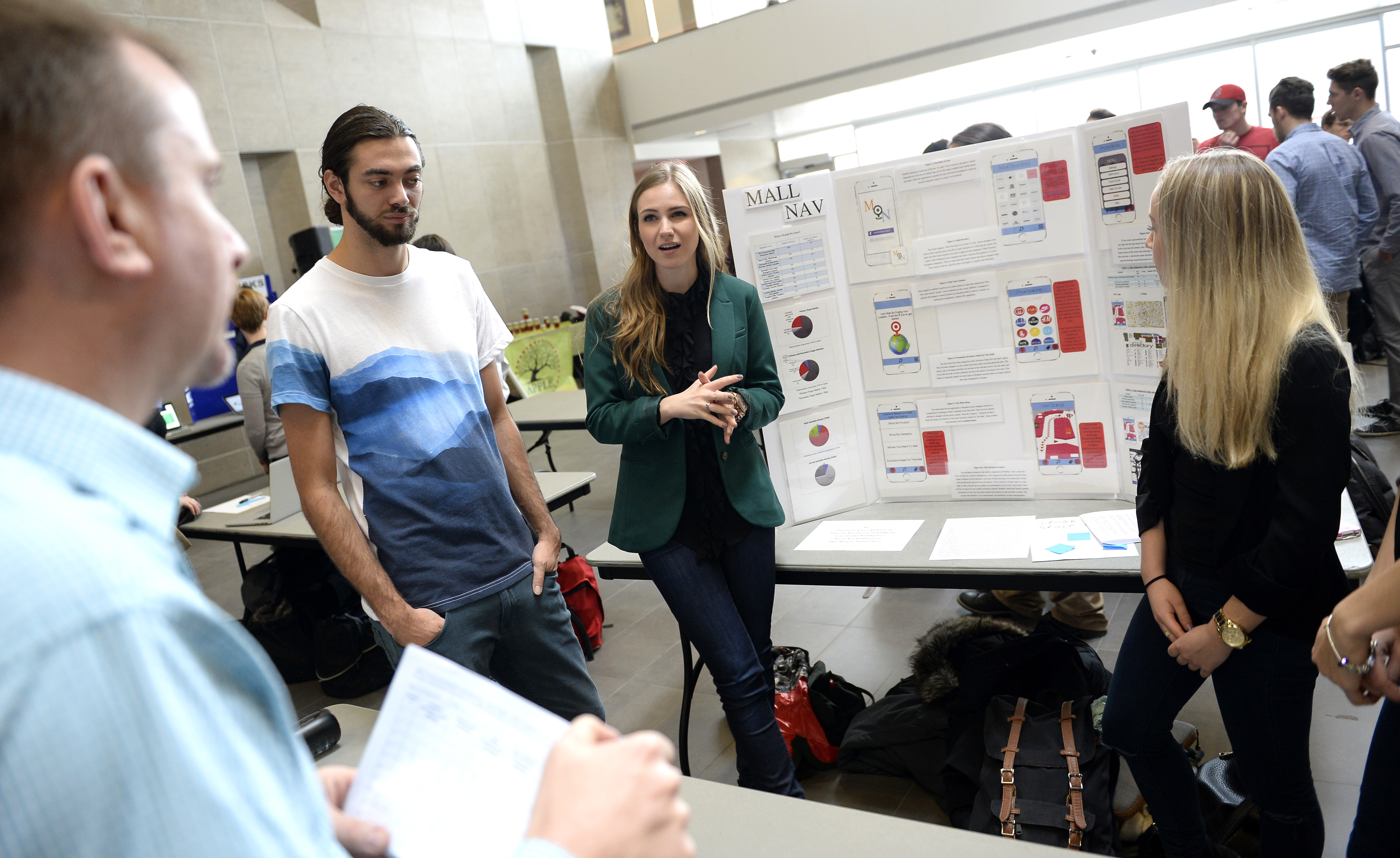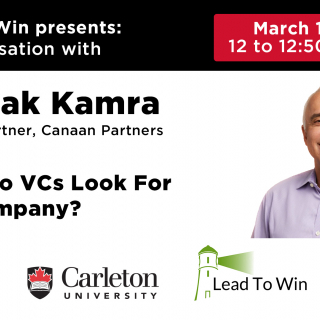Young Entrepreneurs Display Products at Venture Demo Day
By Susan Hickman
Nineteen-year-old criminology student Shalisa Shaw had no idea how much work was involved in starting a business until she enrolled in an introductory entrepreneurship course at Carleton University.
With three other students, she sold nearly $2,500 worth of glass water bottles predominantly targeted at the millennials market. Sandblasted with custom messages, Shaw’s “VESI” bottles pulled in about $1,400 in profits that were donated to the Ottawa Humane Society.
Shaw’s teammates, Industrial Design students Kekoa Tang and Marie Soulodre, designed the bottle and used stencils to create personal texts for their customers.
“Our generation is really into reusable water bottles,” says Shaw. “Our VESI bottle adds a personal touch.”
The VESI group was one of 58 venture teams comprised of undergraduate students from all faculties displaying their new ventures in the atrium of the River Building during Venture Demo Day on Monday, Dec. 7.
VESI was also one of 22 teams in Diane Isabelle’s second-year entrepreneurship course at the Sprott School of Business involved in a pilot project using a gamified online platform – VentureChallenge – developed in partnership with Shopify. Students set up their stores online, developed marketing and business plans and donated a total of $5,000 in profits to various charities.
Fall 2015 Venture Demo Day was open to the entire campus for the first time. It was hosted by the Sprott School of Business, the Lead to Win Program, and Hatch, Carleton University Students’ Association’s entrepreneurship program.
Shaw, who plans to pursue a career in entertainment management, believes entrepreneurship is a good networking opportunity.
“I never knew there was so much work that goes into entrepreneurship,” she admitted. “But I have also learned how quickly you can start a business if you put your mind to it.”
Greg Dillon, 23, a fourth-year communications major, has found entrepreneurship more rewarding than his other studies. An avid skier, he and his three team mates developed a selfie stick that allows 360-degree filming by active sports enthusiasts who want to capture exciting footage of their experiences.
“I have always wanted to be my own boss,” said Dillon, who has learned that working with a team brings different perspectives and diversity to the table. “I have been so grateful that Carleton is progressive enough to teach entrepreneurship “by doing.” When you’re a student, it’s a good time to begin a business, because the whole world is rooting for you.”
Dillon is among instructor Tom Duxbury’s entrepreneurship students. He is making tens of thousands of dollars with his Spivo Stick and is a good example of a student entrepreneur, said Duxbury who, with fellow instructor and serial entrepreneur, Stephen Davies, conceived the idea of Venture Demo Day to allow students to present their business ideas at their early stages.
“Dillon actually made something and he’s in business,” said Duxbury. “Entrepreneurship is hard for students. It takes all your time and attention.”
Many student entrepreneurs receive support from the Ontario Centres of Excellence (OCE) through Lead To Win, which is part of Capital Entrepreneurs, a joint initiative with the University of Ottawa and Algonquin College. The ecosystem that supports young entrepreneurs builds on the strengths of the three post-secondary institutions, their alumni and their experienced entrepreneurs working in the community.
Capital Entrepreneurs brings everything together under one umbrella, explained John Fielding, regional director of OCE business development. “So you can have a flow of entrepreneurs from the different universities and colleges who can be part of the bigger ecosystem.”
Increasingly, says Fielding, the government is focusing on helping entrepreneurs. “There’s a whole ecosystem working together.”
Businessman and philanthropist Wes Nicol, who has contributed millions to Carleton to help students realize their dreams, said Monday the student entrepreneurs “are getting better and better all the time.” Attending to observe and advise, Nicol said he asks the students: “Have you thought of this? Have you thought of that?’ If they are running on something I don’t think will work, I tell them. You have to be honest.”









